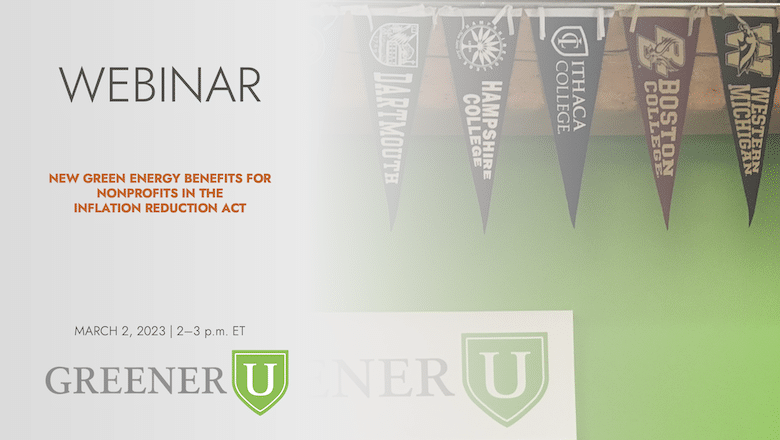The Benefactor Investment Model: a new way for nonprofits to finance clean energy
Although research suggests that sustainability-related giving opportunities grow the pie by expanding giving, development officers have been understandably reluctant to move in that direction for fear of diverting precious donations from pressing operational and capital needs. The Benefactor Investment Model (BIM) solves this tension by creating an investment opportunity for high-net-worth friends of the institution that: provides a reasonable return on their investment, benefits the institution financially, and helps the institution make meaningful progress on its sustainability goals.
On Tuesday, October 13, 2020, GreenerU's David Adamian and EcoMotion's Ted Flanigan and Mark Hopkinson teamed up to present this new financing mechanism. Learn more in the video below.
Additional resources
PowerPoint slide deck from October 13, 2020 presentation
To learn more about the Benefactor Investment Model, or to have a conversation about steps toward developing and implementing a climate action plan at your institution, contact us.



